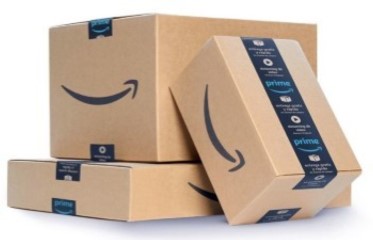
Send Amazon Down the River
(Published in 1999. And our bookstores are all but gone.)
Amazon.com’s stock is worth 1.5 gazillion dollars. The company that started as "earth’s biggest bookstore" has taken on music and toys as tributaries and become "the Internet’s biggest retailer". The catalog I received last week from Tool Crib of the North (woodworking tools) announced that it was now "an Amazon.com company". They tempted me with a $10 coupon for anything at Amazon, and my mouse finger twitched with desire.
One could point out that the Amazon river is full of piranhas, efficient and voracious eating machines, and that it rushes through the denuded rainforests of Brazil. But how would that be relevant?
Amazon has done a fabulous job, with summaries and user reviews, low prices, a great search engine, and about the best Internet shopping experience there is. But I don’t want to shop there. Please, help me not shop there.
I stayed overnight in Ames recently, and when I mentioned that I am from Fairfield, the clerk said "ooh, that’s a strange place." I probed, and she whispered, "Fairfield people are always asking for something different from everybody else." Still, she said, she wanted to visit, "because I hear they have really interesting bookstores."
21st Century and Revelations are more than really interesting — they are invaluable gems. The term "browsing" has been claimed by the Internet, but the disembodied, stuttering, search-based browsing available on the Web is nothing compared to true browsing, where you can touch and smell and get surprised by the books, bump into friends, mingle with other book lovers, and know that your money is going to support the local people who have been faithfully serving our community for years.
Amazon is like Wal-Mart: it’s good at what it does, it’s huge, it has what you want, it’s easy. The only price you must pay is the death of small retailers.
Even with Amazon’s shipping charges, I often must pay a little more to order a book or a CD from a local store. And I need to pick up the item when it arrives, rather than waiting for the UPS man drop it on my porch. But these are niggling considerations compared to the real issues here. My wife frequently reminds me, to bring me back from my epileptic shock over the cost of some free-range-organic-nature’s-own product she brings home from Everybody’s, that we are voting with our checkbooks. We influence our options for the future by where we spend our money today.
Spending the few extra dollars it takes to buy books and music locally is a cheap and effective way to vote, to help keep Fairfield interesting into the 21st Century. By all means browse and search on Amazon.com or the other Web Behemoths. There is nothing unethical about surfing the Internet’s much-touted free information. But my own plan is this: when my research is done, I will pick up the phone and order locally. Won’t you join me?
